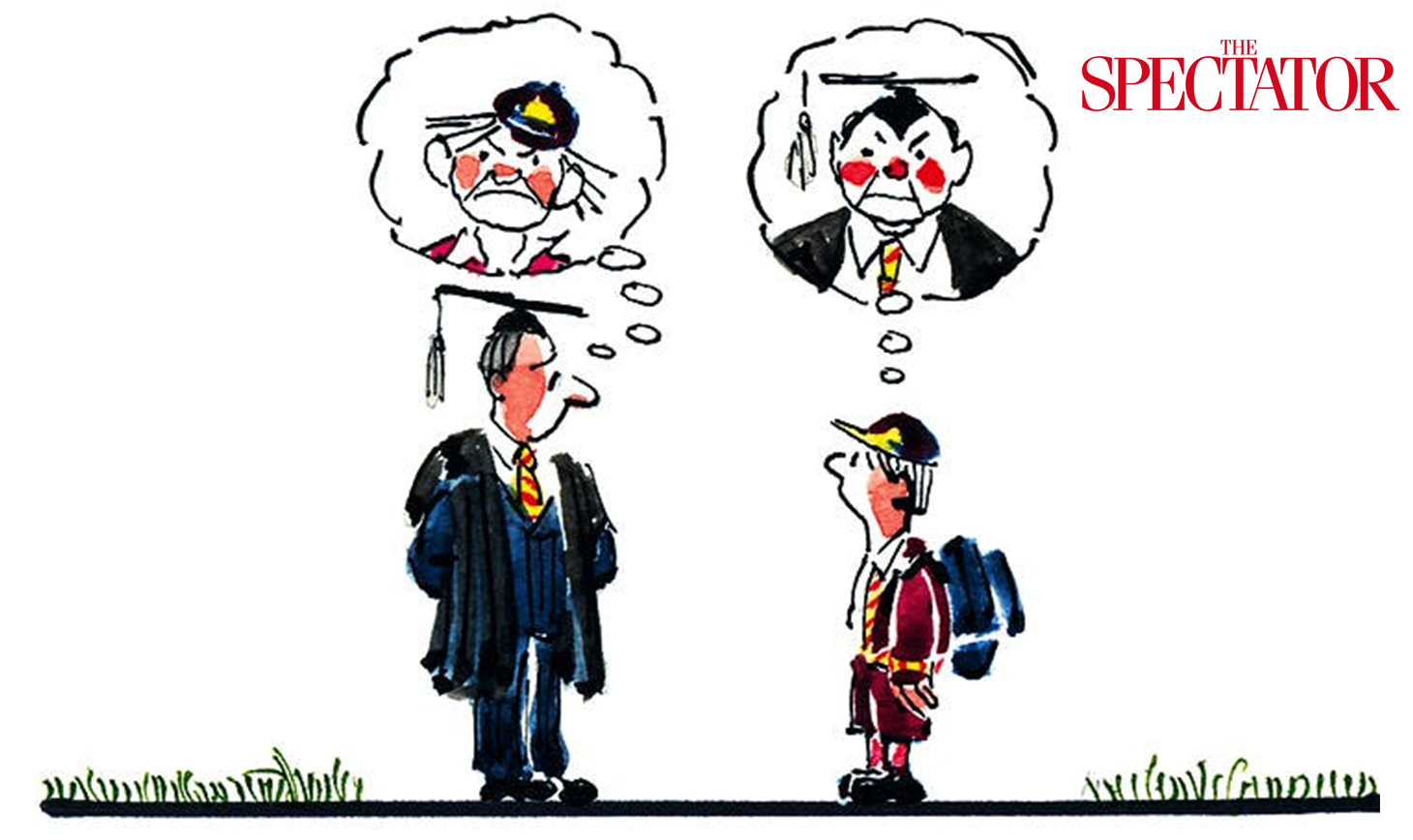
The best of schools, the worst of schools
Over the last 20 years, he has worked at almost every type of mainstream school, going on to become headmaster of a state grammar, an academy, and a state comprehensive. In 2006 he took over as head at Pate’s Grammar, one of the UK’s highest performing schools (ranked ninth by the Sunday Times last August) before arriving at Reigate Grammar School five years ago.
Unlike Pate’s, Reigate is a grammar in name but not nature — one of those that in 1976 moved from being voluntary aided to the independent sector. And he’s very happy there:
I’ve worked at the worst schools as well as some of the best schools, and it was working at the “worst” school where I learnt to believe in the importance of education as a transforming influence on people’s lives.
The working differences between the state and independent sectors are immense, he says. ‘The teachers in the state sector are highly skilled, highly principled and doing their best. They want to make a difference. When I moved to the independent sector I realised that it was possible to do that so much more effectively without the compliance culture that comes from Ofsted — without the constant compromises that are necessitated by funding problems. Suddenly we could do the things I’d always wanted. It was liberating.’ The difference is accountability: ‘to the children, rather than to government inspectors and their clipboards. We never talk here about what the inspectors will say — we talk about whether it’s what the parents will want. In the state sector, a week wouldn’t go by without us wondering what Ofsted would think.’
Reigate is a big school with almost 1,000 day pupils, aged 11 to 18. Fenton would be open to working at a boarding school one day, but believes it is not the structure that makes a school, but the ethos; the community. The best way to gauge this, as a prospective parent, is to go and watch the school matches, or musical events, on an ordinary day. ‘What do the boys say when one of them drops the ball on the rugby pitch? Is the grade eight violinist being encouraging when a boy is playing his first concert on the scratchy double bass? That’s the school ethos. It’s not necessarily about the quality of the first orchestra, it’s about the relationships and nurturing culture.’
At Oxford, he stood against Louise Mensch (then Bagshawe) for election to the Union. ‘She beat me, so maybe she was always destined for a political career,’ he says with a laugh. There was also a famous incident in the chamber with Jacob Rees-Mogg. ‘I remember him being unprepared for a paper speech and instead of reading it — it was about Europe — he wrapped himself up in the Union flag and sang ‘Land of Hope and Glory’. He got a standing ovation.’
Fenton is ambitious for Reigate. He wants to beat nearby Caterham on the rugby pitch, and St John’s, Leatherhead, at netball. But like many PPE graduates of his generation, there’s more to his drive than sporting japes. ‘My ambition is to be the best school in the country.’ Naturally, but there’s more: ‘That’s not necessarily being better than competitors — I see other schools in general as being collaborators. I want this school to be the best school in the country — not measured by league tables but by happiness and quality of friendships… how children become the best version of themselves, and that’s a journey rather than a destination. I will be pursuing that goal until I retire.’
This article was published in The Spectator on 18 March 2017 by Eleanor Doughty.
